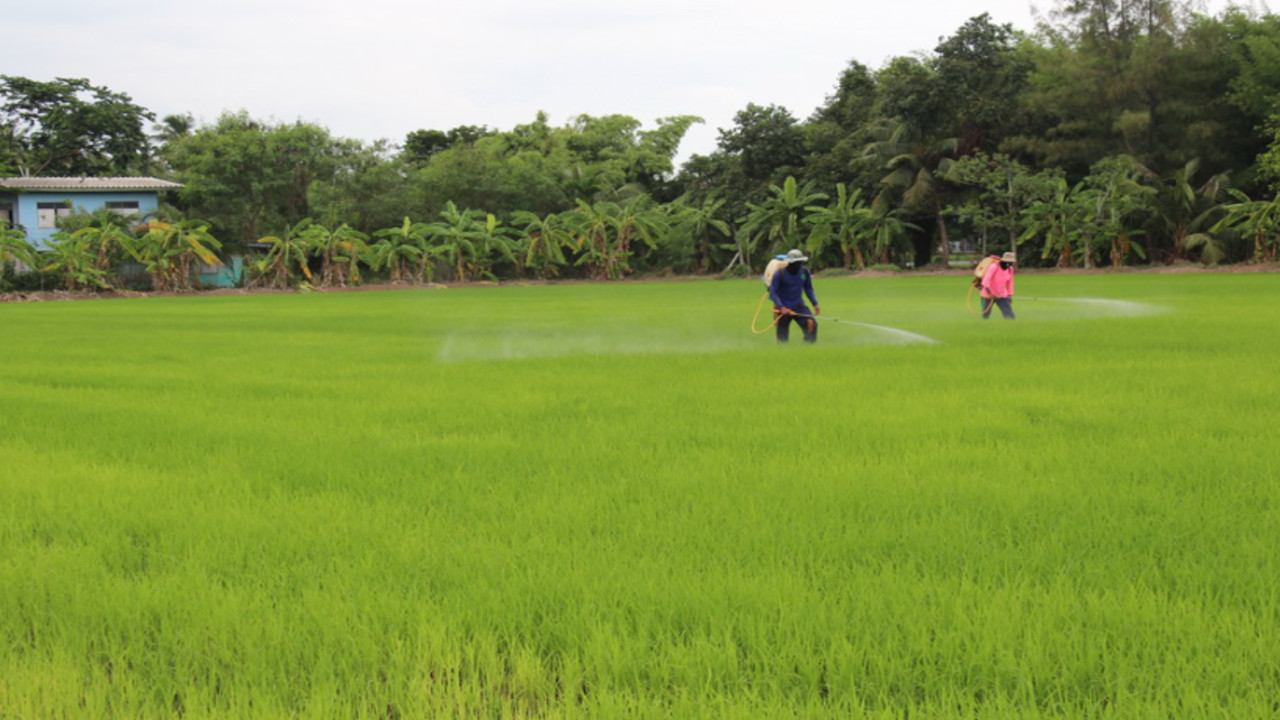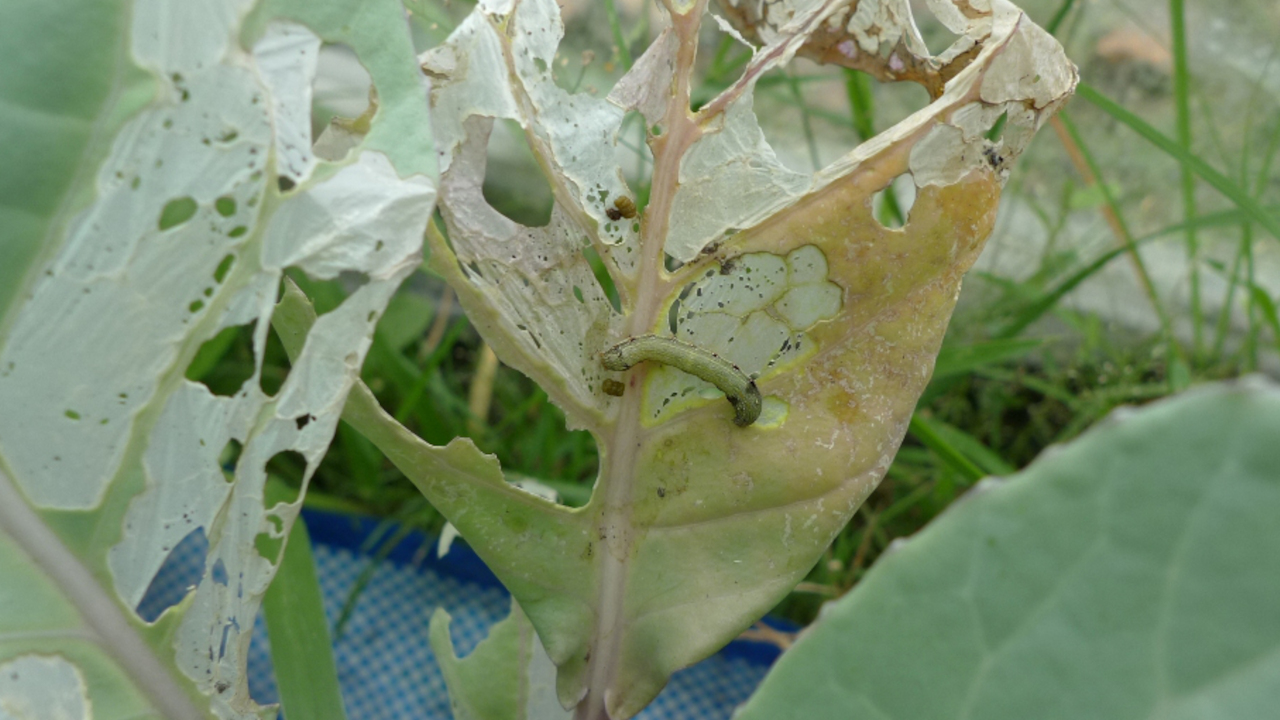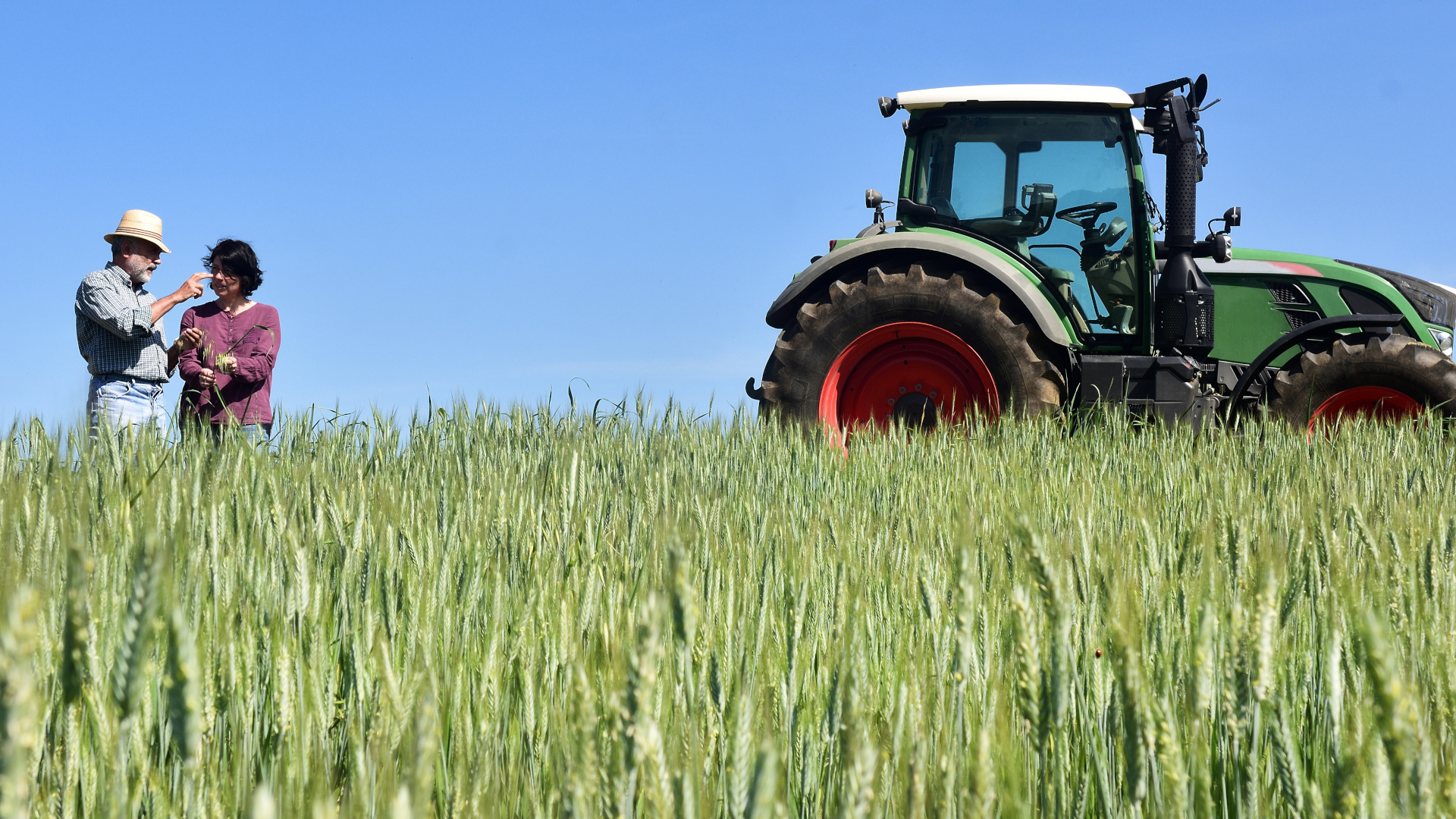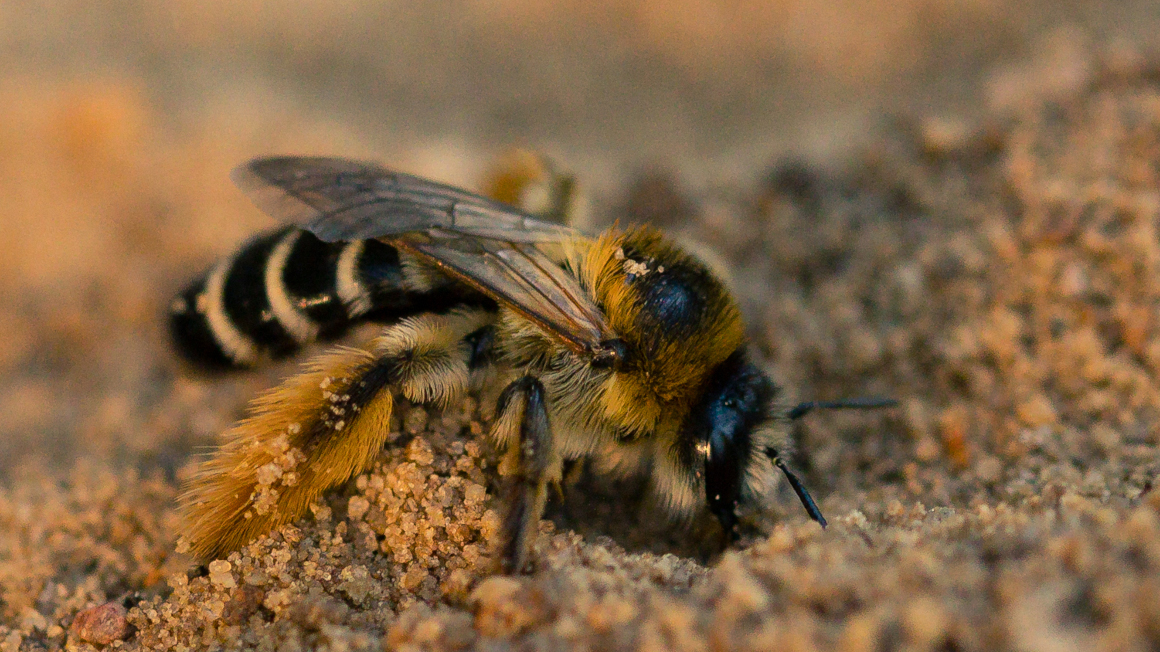
The use of synthetic pesticides such as herbicides, insecticides and fungicides is increasing worldwide. As a result, pesticide residues are increasingly found in food and are accumulating in groundwater and drinking water. Synthetic pesticides are also criticised for reducing biodiversity and reducing soil fertility due to their non-specific effect. It is not possible to do without plant protection, but so-called biologics – i.e. bio-based active ingredients – are a sustainable alternative.
A research team from the Leibniz Institute for Interactive Materials (DWI) in Aachen is looking for ways to minimise the use of synthetic pesticides. They see great potential in protein-based pesticides and are optimising them for use in crop protection. Under the leadership of chemist Ulrich Schwaneberg and biotechnologist Florian Bourdeaux, they are working together with researchers in Thailand to modify a bacterial protein that is toxic to certain insect larvae so that it can withstand the weather conditions in the field. Their InFuProts project has been funded by the Federal Ministry of Education and Research (BMBF) with around 460,000 euros since 2021 as part of the "Bioeconomy International" funding programme.
Autumn armyworm attacks asparagus and Chinese kale
The Aachen-based researchers are considered experts in protein design and use Nobel Prize-winning and proprietary methods to produce customised proteins that can bind to a wide variety of materials and are known as anchor proteins or adhesion promoters. A few years ago, they achieved a breakthrough in the development of anchor peptides for plant protection that adhere to the wax layer of leaves in a rain-resistant manner. The technology they developed is now being used in InFuProts to produce an insect-specific protein active ingredient against the caterpillars of the butterfly species Spodoptera frugiperda. This pest, originally native to North and South America, has now also been introduced to Asia. "In Thailand, the so-called autumn armyworm occurs en masse and infests important crops there, such as Chinese kale, asparagus and cassava," explains project manager Florian Bourdeaux.
Bacterial protein for pest control
A suitable biological agent to control the armyworm was already known and was tested by Thai researchers at the National Centre for Genetic Engineering and Biotechnology (BIOTEC). The agent in question is Vip3A – a protein that originally comes from the bacterium Bacillus thuringensis and is non-toxic to humans. It acts specifically against butterfly larvae, which ingest the active ingredient when eating leaves treated with it and die when it enters their bodies.
In laboratory tests by the Thai scientists, the agent proved to be reliable, but it did not prove itself in field trials: it lost its effectiveness after a short time. The researchers therefore sought contact with the Aachen team. At a joint meeting in Thailand, they developed the idea for the collaborative project. "Our aim was to change Vip3A through targeted modification so that it would adhere to the leaf even in the rain and become more thermally resistant in order to maintain its function," explains Schwaneberg.

Anchor peptide binds active ingredient to the leaf
To prevent Vip3A from being washed off the leaf, the Aachen researchers coupled it firmly to the wax layer of leaves via a spacer and an anchor peptide. This resulted in a fusion protein with two different functions. On one side the anchor, on the other the active ingredient. In laboratory tests in Thailand, the active ingredient proved to be effective even with the anchor. "The trials have shown that the anchor peptide technology is so effective that 50% of the effect is retained even after two to three weeks outdoors in heavy rainfall. After two months, however, the active ingredient had degraded," says Schwaneberg.
Due to the strong adhesion of the fusion protein, it cannot be ruled out that residues will end up in food. In order to minimise the risk of allergic reactions, the team only uses proteins without allergenic sequences and continues to develop the anchor protein technology. "The next generation of fusion proteins will be able to distinguish between leaf and fruit. We have also produced pH-switchable adhesion promoters that detach almost completely from the fruit at a pH value in the slightly acidic range," explains Schwaneberg.
In order to improve the thermal stability of Vip3A, the Aachen team modified the protein sequence of the active ingredient. They increased its temperature stability from 55.3 to 57.1 degrees Celsius. Bourdeaux still sees potential for improvement here: "Two degrees Celsius already makes a big difference in the field and can increase the lifespan of the protein by 40 to 50 %, but our goal is to improve the temperature stability even further, also by varying the structure of the anchor protein."
Fewer pesticides and longer protection thanks to smart technologies
The researchers hope that the adhesion-promoting Vip3A active ingredient concept they have developed will also prove its worth in agricultural practice in the future. Schwaneberg assumes that the bio-based active ingredient is cost-competitive due to its resistance to rain: "One gram of the bifunctional peptide is sufficient to cover around 250 square metres of surface area as a dense monolayer. The production costs for such speciality proteins are around one euro per gram. Bulk enzymes are 10 to 40 times cheaper. In addition, the biopesticide only needs to be applied in a few cycles, which saves labour time and resources and reduces the carbon footprint," says Schwaneberg.
The amount of active ingredient could be reduced even further if the protein were placed in microgel containers made from sugar polymers, which release the pesticide slowly and as required. The Aachen researchers have developed this so-called green release technology as part of many different projects. These include the BMBF-funded ProPlanta project. The combination of both technologies makes it possible to significantly reduce the amount of pesticide used and at the same time achieve a higher level of plant protection. Four postdoctoral researchers from the DWI and RWTH Aachen University will further develop the technology commercially over the next two years through the spin-off start-up "Aachen Proteineers".
Great application potential for fusion proteins
The insect-specific active peptides could also be used against other pests such as the box tree moth, which is widespread in Germany. Although the protein-based active ingredient is biodegradable and biobased, it cannot be used in organic farming: "The two halves of the fusion protein come from bacteria. However, they do not occur in this combination in nature, which was categorised as difficult in a preliminary regulatory review for approval for organic farming," explains Schwaneberg.
In future, the DWI researchers want to look for further possible applications for the technologies they have developed in plant protection and make a name for themselves in the field of biologicals. To this end, they also want to set up an insect laboratory at the institute in Aachen in order to accelerate the research work.
author: Doreen Penso Dolfin


